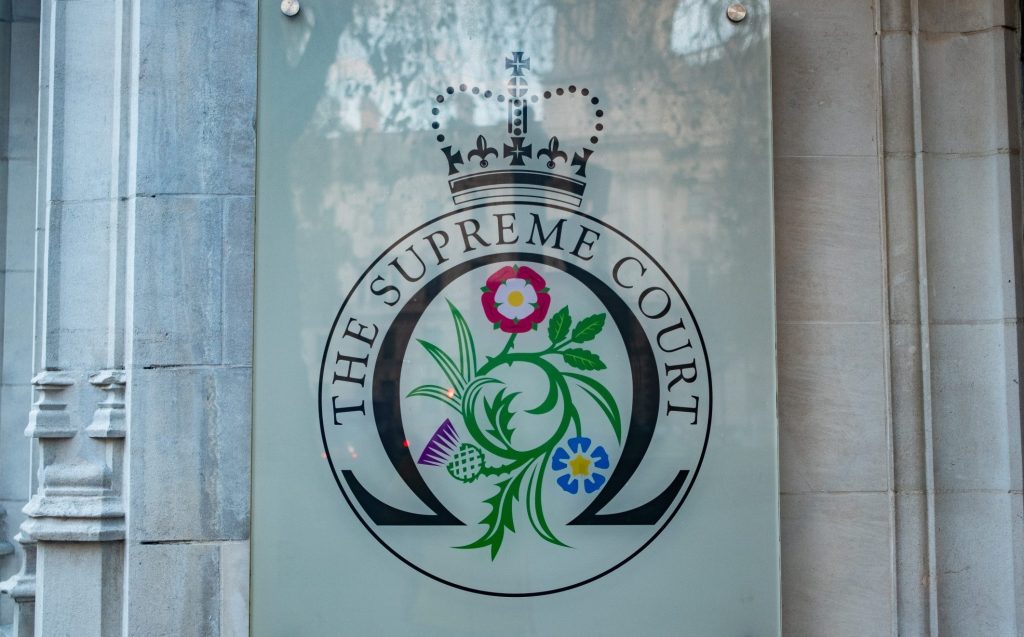On 31 October and 1 November 2023, the UK Supreme Court will be hearing the former husband’s appeal in the case of Potanin and Potanina [1]. The appeal will consider in what circumstances it is appropriate for the English family court to allow a former spouse to make an application for financial provision in England after a foreign divorce pursuant to Part III of the Matrimonial and Family Proceedings Act 1984.
The Potanin litigation started in England at the beginning of 2019 when the former wife applied for permission to bring an application for financial provision in England after the Russian divorce. The parties (both Russian nationals) married in Russia in 1983, had three children (who are all now adults) and divorced in Russia in 2014. During the mid-1990s the former husband became ‘massively rich’ and the former wife estimated his wealth in the region of approximately USD 20bn. During the marriage the former husband transferred to the former wife assets worth in excess of USD 70m.
The Russian proceedings were extremely protracted, but the net effect was that the former wife was awarded USD 41.5m (according to the former wife) or USD 84m (according to the former husband). The difference between them was owing to a difference in the exchange rate depending on whether it was applied on rubles to dollars in 2007 or 2015. At the time of the leave application the wife put her asset base at USD 19m albeit after she had given an equivalent amount to her various family members.
Following a without notice leave application in January 2019 Mr. Justice Cohen had granted the former wife leave under Part III. The former husband applied to set aside that leave on the basis that some decisive authority had been overlooked and/or the court had been misled. After considering the former husband’s submissions in late 2019 Cohen J summarised three categories in which he felt there had been misrepresentation namely:
- factual misrepresentation
- misrepresentation as to Russian law/proceedings and
- misrepresentations of English law
Within the first category were instances such as the former wife having told the court she received child maintenance of USD 2.3m (whereas it was USD 7.3m) and that she had significantly overstated her connections with England. In the second category there was evidence that the former wife had not given the English court the full picture in respect of the Russian proceedings including that she had not made any needs-based claim in those proceedings. The third category included that, although the court was referred to the leading case ‘Agbaje’, the court was not referred to important paragraphs of that judgment in oral submissions and that as a result, the court had not properly considered the legislative purpose of Part III.
As a result, Cohen J concluded that if the full picture had been before the court at the leave hearing, the court would not have granted leave. Moreover, Cohen J was satisfied that the grant of leave was because of material misleading the court and that the former husband’s set aside application should be granted [2]. At the same hearing Cohen J went on to re-consider, and dismiss, the former wife’s Part III leave application.
The former wife appealed to the Court of Appeal. The appeal hearing took place in January 2021 and the judgment was handed down in May 2021 [3]. The Court of Appeal concluded that whilst it may have been that the court might have refused to grant permission had the leave hearing been determined on notice, the alleged misrepresentation was not sufficiently material to justify the leave being set aside. The Court of Appeal therefore allowed the former wife’s appeal and directed that the substantive Part III proceedings should be determined by a High Court judge after hearing oral and expert evidence.
The Court of Appeal concluded with the following comments:
“By no means all Part III cases relate to families with massive or even substantial wealth, and it is important that the cohort of persons for whom Part III proceedings were designed have access to a straightforward and cohesive procedure. Looking more broadly, as we approach the 40th anniversary of the 1984 Act, the complexities, and challenges to which I have referred would suggest that this is an area which could well benefit from consideration by the Law Commission in due course.”
Given that the Law Commission’s recent announcement that they are conducting a review into the law which govern financial provision on divorce, expressly excludes Part III claims it is timely that the Supreme Court now has the opportunity to give much needed guidance in this area. I have written previously for the Financial Remedies Journal [4] about some of the areas which need to be reviewed. Whilst some of these are outside the scope of judicial development it is hoped that the Supreme Court will give guidance in relation to, among other things, the obligations on applicants at Part III leave hearings, in what circumstances Part III leave hearings should be determined on notice or ex parte, and the circumstances in which Part III leave should be set aside.
It is also hoped the Supreme Court will give guidance as to the approach that the court should take when considering an application where, whilst there may be jurisdiction, there were limited connections to England during the marriage. It is worth remembering that in Potanin the former wife – who married in Russia, spent all the marriage living in Russia and divorced in Russia in February 2024 where she received in excess of USD 40m – did not obtain a UK visa until June 2014 and did not make England her permanent home until 2017. As Mr. Justice Cobb said in a recent address to the Jersey International Family Law Conference [5], the Supreme Court’s decision could also have wider reaching consequences beyond Part III including ‘forum shopping’ and whether London is still perceived as the ‘Divorce Capital of the World’.
Links
[1] https://www.supremecourt.uk/cases/uksc-2021-0130.html
[2] https://www.bailii.org/cgi-bin/format.cgi?doc=/ew/cases/EWHC/Fam/2019/2956.html&query=(EWHC)+AND+(Fam)+AND+(2019)+AND+(2956)
[3] https://www.bailii.org/cgi-bin/format.cgi?doc=/ew/cases/EWCA/Civ/2021/702.html&query=(EWCA)+AND+(Civ)+AND+(2021)+AND+(702)
[4] https://financialremediesjournal.com/content/part-iii-reflections-on-the-40th-anniversary-of-the-law-commissions-recommendations.8d38927d04454338a0b45a4174aecc29.htm
[5] https://financialremediesjournal.com/content/london-divorce-capital-of-the-world.14f1cbd485184719b70eb7b73afa65e0.htm
Michael Allum
[email protected]
The International Family Law Group LLP
www.iflg.uk.com
© October 2023
- Michael Allumhttps://iflg.uk.com/team/michael-allum
- Michael Allumhttps://iflg.uk.com/team/michael-allum
- Michael Allumhttps://iflg.uk.com/team/michael-allum
- Michael Allumhttps://iflg.uk.com/team/michael-allum











